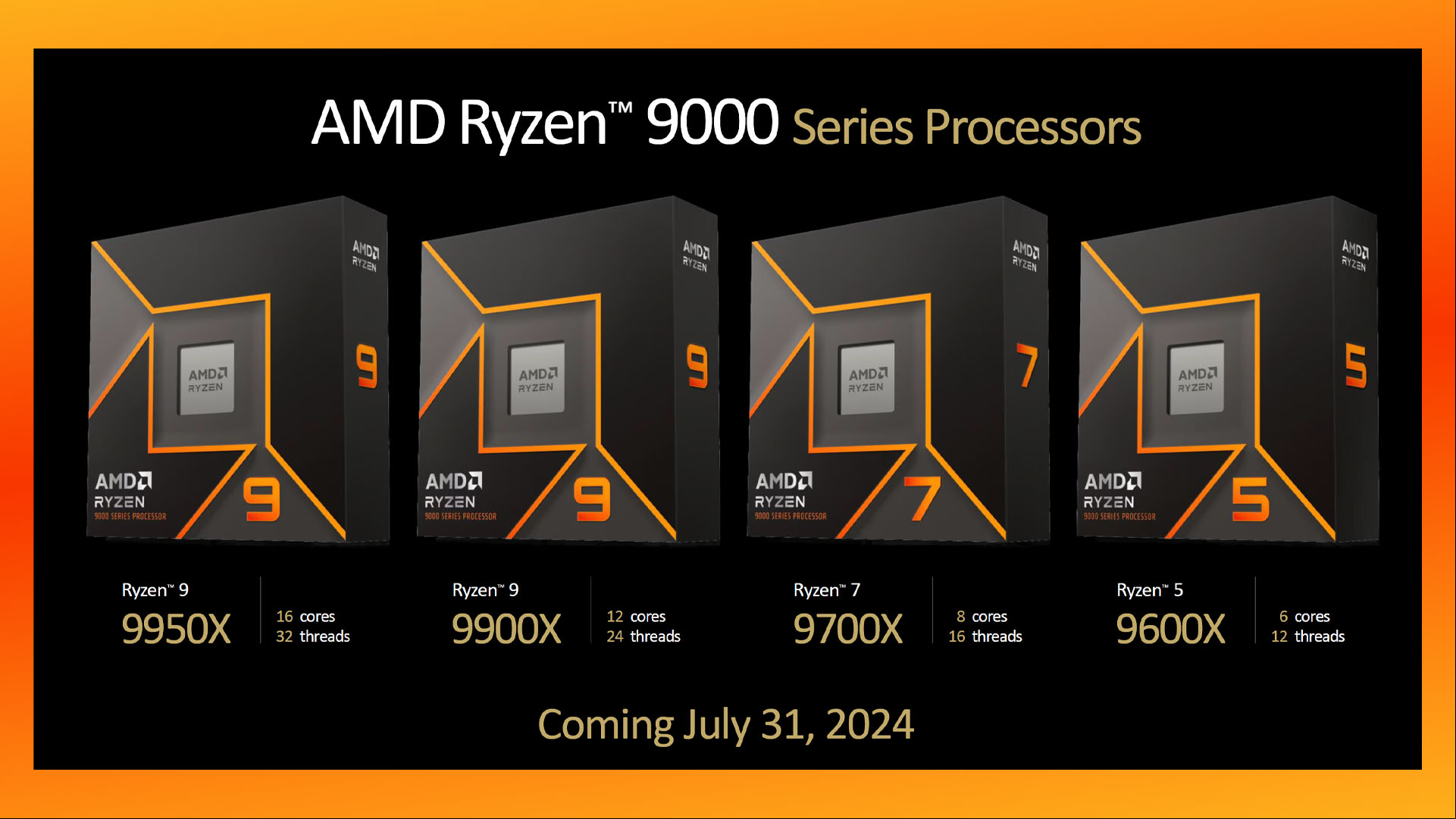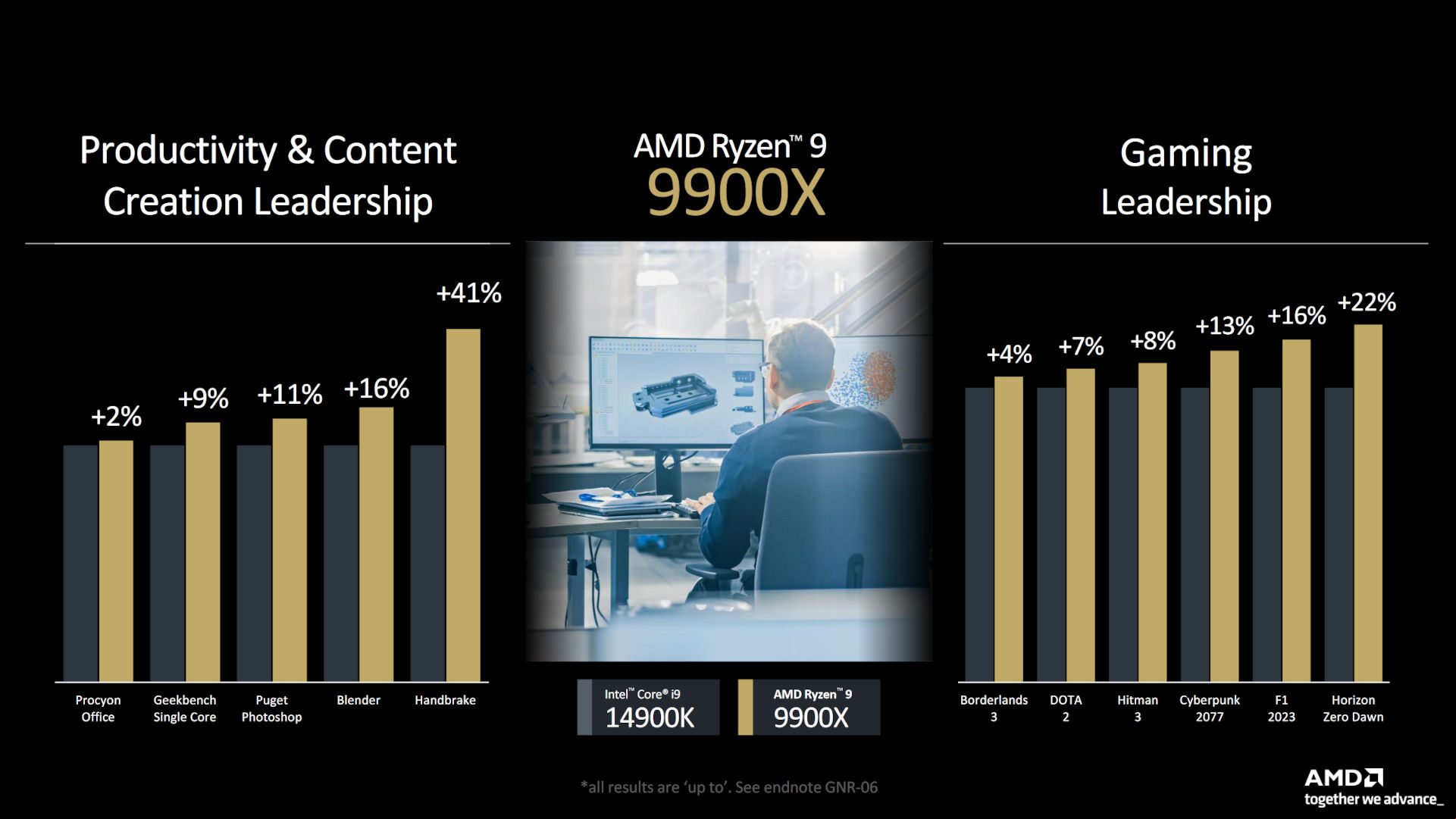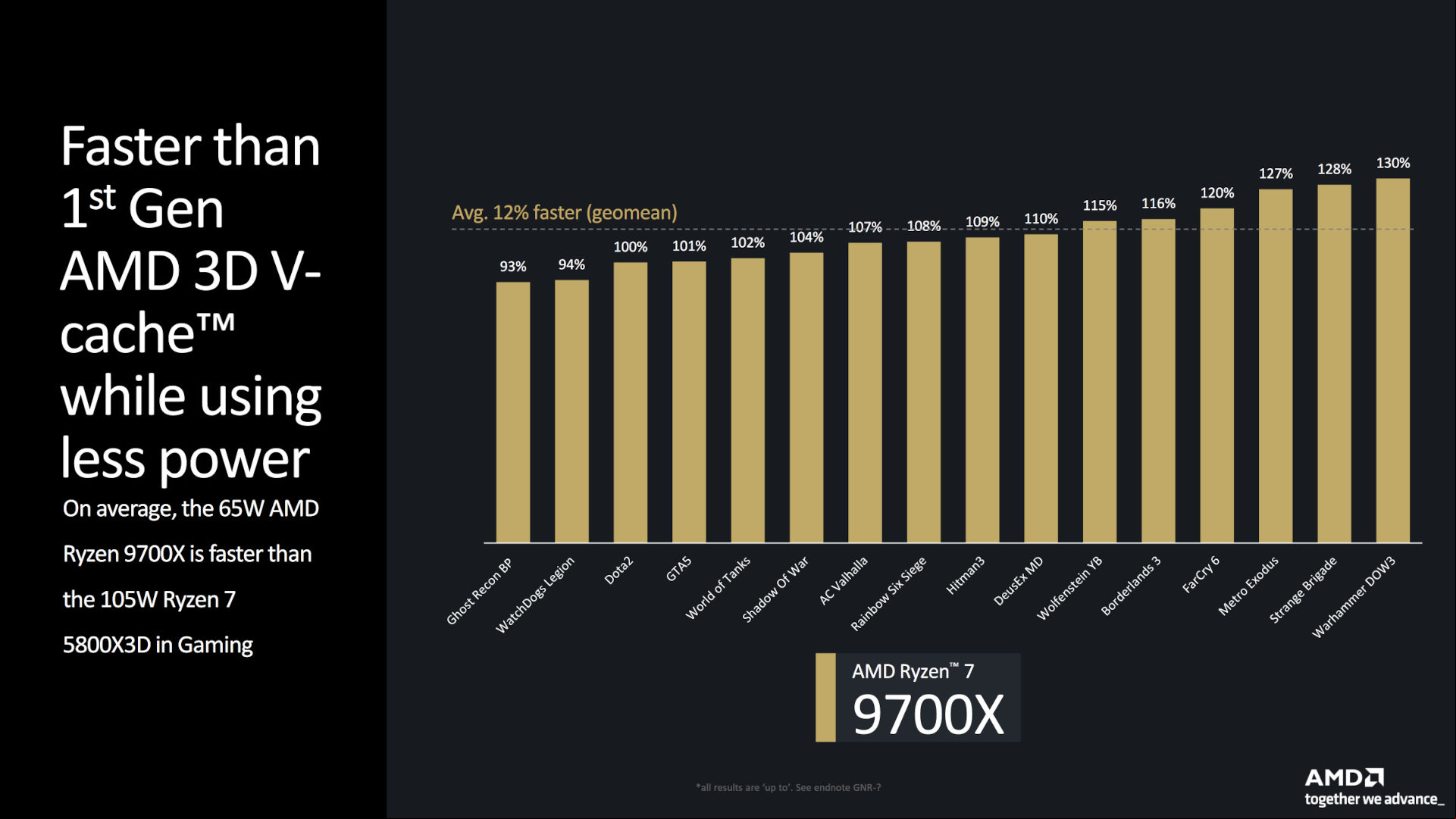AMD's Zen 5 Us are nearly upon us, with the company's brand new chips set to arrive in early August 15, 2024, and bring with them what's expected to be a new level of gaming performance. The AMD Zen 5 range covers both desktop and laptop Us, with the former arriving under the Ryzen 9000 series name and the latter using the Ryzen AI 300 name.
We fully expect these new best gaming Us and to power some of the most capable gaming laptops too, without the need for an extra graphics card in the case of the latter. So to find out just what Zen 5 is and what it's all about, read on for the full lowdown.
What is AMD Zen 5?
AMD Zen 5 is the new U architecture from AMD that powers its Ryzen 9000 desktop Us and Ryzen AI 300 laptop Us. It's the followup to AMD Zen 4 and defines the underlying tech, with different U designs being based on its core features.
As an architecture, Zen 5 isn't a specific chip you can buy in the store but instead it defines the design and components that AMD uses to build its products. So you'll soon be able to get Zen 5 chips that are powerful 16-core desktop processors pulling over 200W and smaller 10-core laptop chips (we expect there to be even smaller 6-core chips too but these haven't been announced yet) that use as little as 15W of power.
The key commonality between all these chips are the advances AMD has made in the design of its latest U cores that result in AMD claiming Zen 5 has a 16% increase in instructions per clock (IPC) over its Zen 4 microarchitecture. That figure is how much work the U can do on each tick of its internal clock, which runs at up to 5.7GHz on the fastest new Zen 5 desktop chip.
What Us use Zen 5?
AMD has six Us that will use its Zen 5 architecture. These consist of four desktop Us – the Ryzen 9 9950X, Ryzen 9 9900X, Ryzen 7 970X, Ryzen 5 9600X – and two laptop Us – the Ryzen AI 9 HX 370 and Ryzen AI 9 365.
While only six chips have been announced so far – all of which are relatively high-end models – we expect AMD to follow up with lower-specced designs in future releases, though these probably won't arrive this year. The full specs of the announced Us are below:
AMD Zen 5 desktop Us:
| Model | Cores / threads | Boost / base Frequency | Total cache | PCIe | TDP |
| AMD Ryzen 9 9950X | 16 / 32 | 5.7GHz / 4.3GHz | 80MB | Gen 5 | 170W |
| AMD Ryzen 9 9900X | 12 / 24 | 5.6GHz / 4.4GHz | 76MB | Gen 5 | 120W |
| AMD Ryzen 7 9700X | 8 / 16 | 5.5GHz / 3.8GHz | 40MB | Gen 5 | 65W |
| AMD Ryzen 5 9600X | 6 / 12 | 5.4GHz / 3.9GHz | 38MB | Gen 5 | 65W |
AMD Zen 5 mobile/laptop Us:
| Model | Cores / threads | Boost / Base Frequency | Total cache | GPU | cTDP | NPU |
| AMD Ryzen AI 9 HX 370 | 12 / 24 | 5.1GHz / 2.0GHz | 36MB | AMD Radeon 890M Graphics | 15-54W | Yes (50 TOPs) |
| AMD Ryzen AI 9 365 | 10 / 20 | 5.0GHz / 2.0GHz | 34MB | AMD Radeon 880M Graphics | 15-54W | Yes (50 TOPs) |
When was the AMD Zen 5 release date?
The AMD Zen 5 release date was August 15, 2024, for the desktop Ryzen 9000 Us. AMD officially announced the Ryzen 9000 release date on July 15, stating it would be July 31, but at the last minute, the company pushed back the launch by two weeks.

When the official AMD Zen 5 announcement was made, the company's CEO, Lisa Su, committed to a July 2024 release date for both desktop and laptop parts and, on July 15, 2024 the company finally pinned down an exact date of July 31, 2024. This only covers the desktop Us, though.
As for the laptops, a Ryzen AI 300 release date leak suggests the original date for these parts was set to be July 15 but that this has now been pushed back to July 28.
Previous rumors, meanwhile, had pointed to a Ryzen 9000 review sample images also apparently appeared, suggesting AMD had started sending the chips to some review publications.
What are the AMD Zen 5 specs?
The exact AMD Zen 5 specs vary considerably depending on the exact U that implements the new architecture. However, the main U core design includes a 16% improvement in IPC over Zen 4, according to AMD.
While no further specific numbers pertaining to how this change has been achieved have been released yet, AMD has also highlighted that its new core design includes the following:
- Improved branch prediction accuracy and latency
- Higher throughput with wider pipelines and vectors
- Deeper window size across design for more parallelism
The first of these changes concerns the so-called "front end" of the U, which deals with instructions that are sent to the chip. Branch prediction is all about the U trying to guess what instruction might come next based on the instructions it has just received, so improving its accuracy and lowering its latency will help the U react more precisely and quickly – both key aspects for gaming performance.
The second of these highlighted features is to do with the overall ability of the U core to churn through instructions. Wider pipelines means more work can get down at once – just like a wider pipe can carry more water – while vectors refers to the complex calculations needed to perform calculations on large arrays of numbers at once, rather than one data point at a time.
Finally, there third highlighted improvement deals with a similar concept to the above in that it's about the U core being able to do more at once, except rather than just wider pipes, here there are several pipes that the U can work with. We won't go too deep into the analogy but essentially the three features add up to the U reacting quicker and getting more work down at once, which is a whole lot of positives.
AMD Zen 5 benchmarks
AMD's own Zen 5 benchmarks suggest the desktop Ryzen 9000 chips will provide a significant boost in instructions per clock performance, of up to 16%. It also claims its new Ryzen 9900X U will be faster in games than the 14900K and that the 97900X is faster than the 5800X3D in games too.


AMD Zen 5 motherboard compatibility
These new desktop AMD Zen 5 processors will be compatible with existing AM5 motherboards, following a BIOS update, with AMD previously committing itself to ing the socket until at least 2027.
Check out our Ryzen 7 7800X3D review to learn more about AMD's current top-performing processor.
